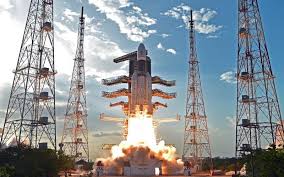ISRO to launch Radar Imaging Satellite ‘RISAT 2BR1’ by end of May 2019
The Indian Space Research Organisation (ISRO) announced its plans to launch its latest radar imaging reconnaissance satellite ‘RISAT 2BR1’ towards the end of May 2019. Its launch was earlier scheduled in 2020 after RISAT-2A but is now preponed.
About Launch
- The RISAT (radar imaging satellite), will be carried by PSLV-C46. It is one of the reusable variants of ISRO’s Polar Satellite Launch Vehicle (PSLV) rocket, which have offered significant progress and technology sophistication in terms of advancement in space technologies. The designation ‘C-46’ is as per ISRO’s numbering system.
- It would depart from first launch pad at Satish Dhawan Space Centre in Sriharikota, Andhra Pradesh.
About Risat Series
- On 20 April 2009, RISAT-2 was deployed in orbit prior to RISAT- 1.
- This was because following 2008 Mumbai terror attacks Indian forces were in dire need of round the clock surveillance. As RISAT- 1’s C-band SAR radar was not yet ready so RISAT -2 was launched carrying Israeli built X-band radar.
- Therefore ‘RISAT-2’ was deployed before RISAT-1. Its main sensor is X-band synthetic aperture radars (SAR) which provided Indian defence forces all-weather surveillance for monitoring national borders to notice any potential threat or malicious activity and to carry out anti-infiltration and anti-terrorist operations.
- RISAT-1 was successfully launched on 26 April 2012 for a period of five years. It is first indigenous microwave remote sensing satellite designed and developed by ISRO. It was launched by PSLV-C19 into sun’s synchronous orbit at an altitude of 536 km.
- It was not designed as a surveillance satellite as it relied on the C-band. Its data was extensively used for applications like natural resources management, in areas of agriculture planning, mainly paddy monitoring in kharif season, forestry surveys and disaster management support, during natural disasters like floods and cyclones.
- About to be deployed RISAT-2BR1 satellite uses same SAR band and will further improve India’s imaging reconnaissance (surveillance) abilities.
Importance
The RISAT series by ISRO are first all-weather earth observation satellites. These Radar imaging satellites are designed to all-weather surveillance using synthetic aperture radars (SAR) i.e. they provide a continuous (24×7) view of earth day or night and even during bad weather for defence forces to detect infiltration along border.
Month: Current Affairs - May, 2019





